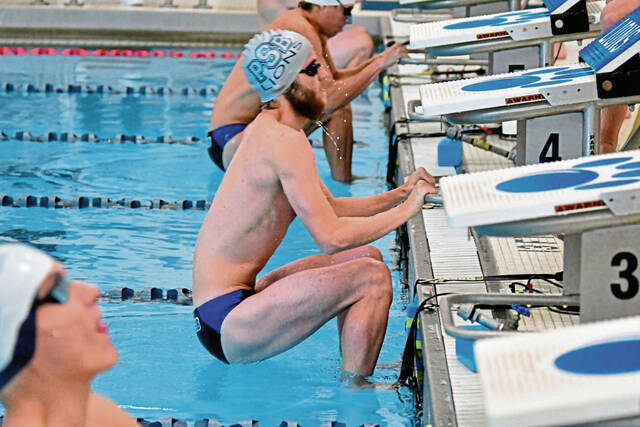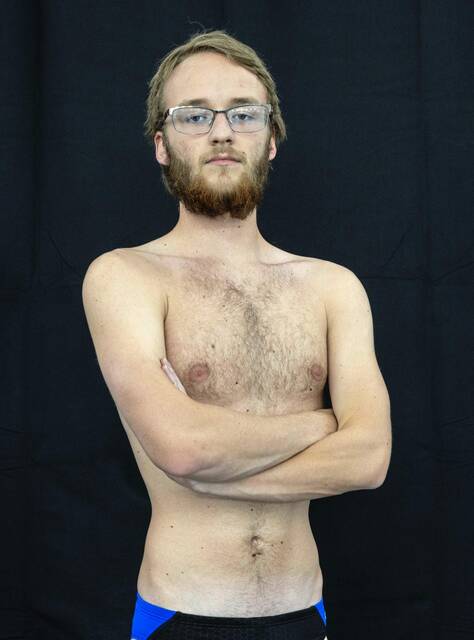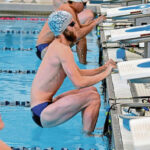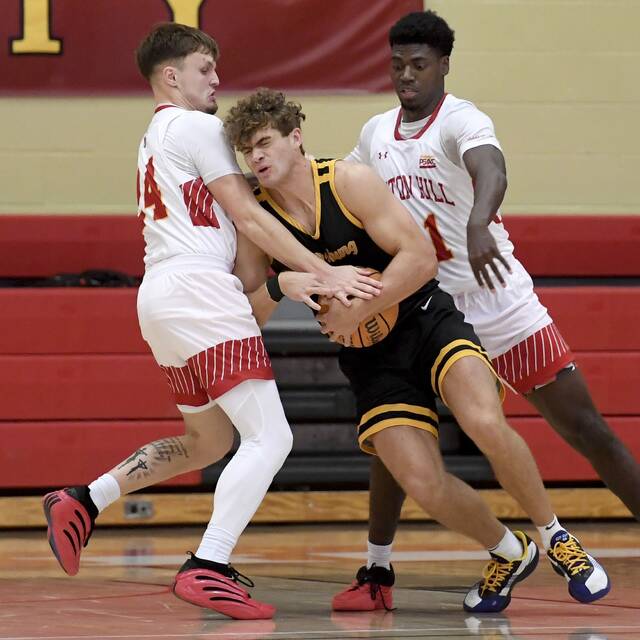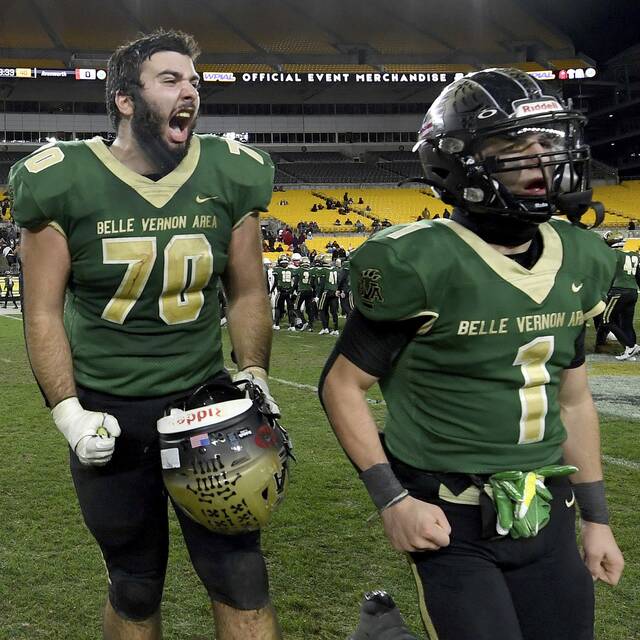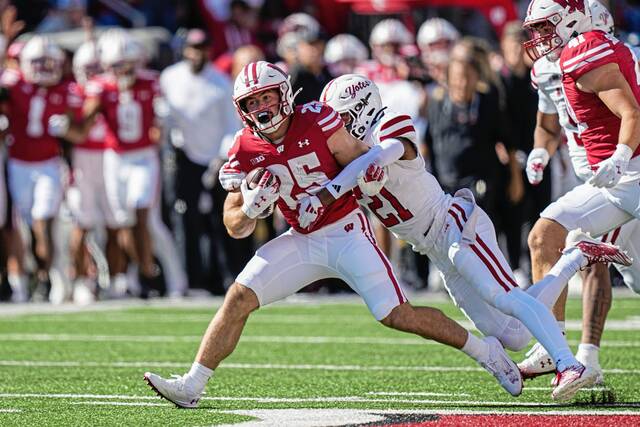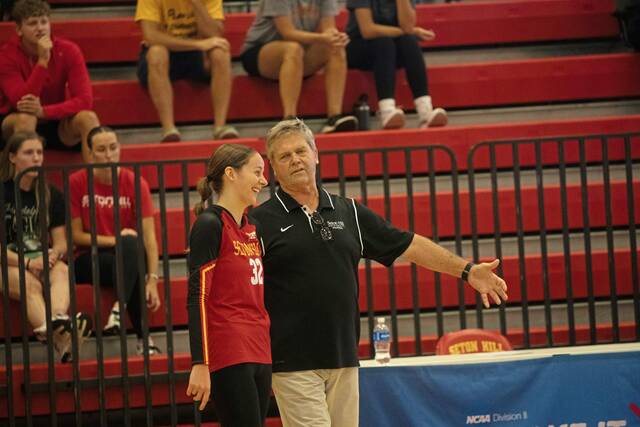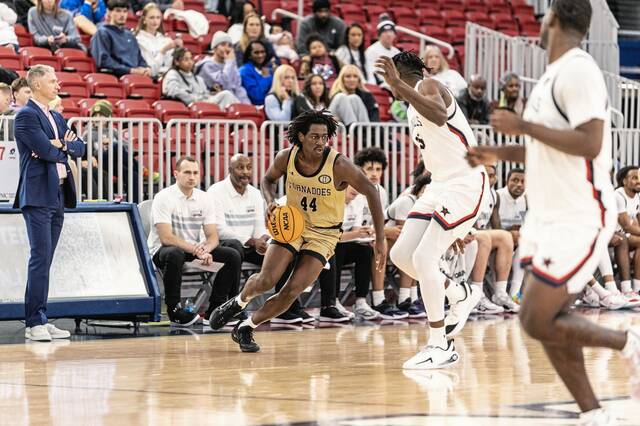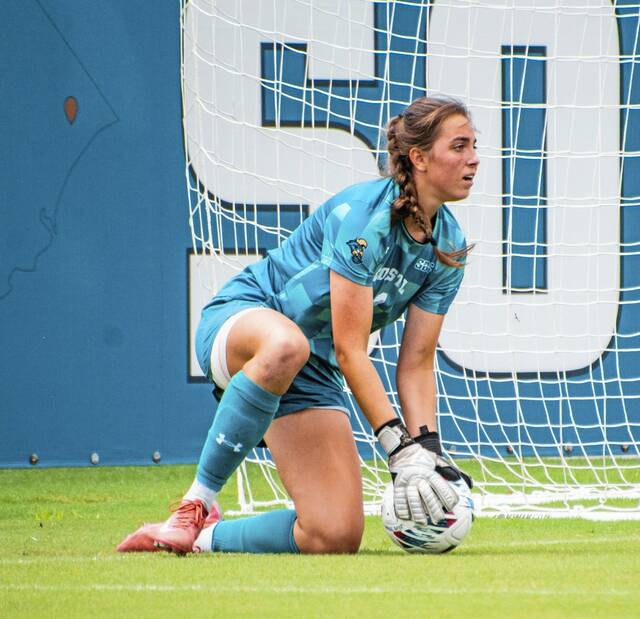Glenn Fowkes had no intention of swimming at Penn State Behrend. In fact, until he reached high school, he had no intention of swimming competitively anywhere.
Fowkes had been a baseball player throughout his youth, and when he reached his freshman year at Kiski Area, he, naturally, tried out for the Cavaliers baseball team. He didn’t make the cut.
Still looking for an athletic outlet, Fowkes turned to the Kiski Area swimming team, of which his older brother Dean was a member. He experimented with a number of events until he found his niche in the backstroke.
Fowkes ended up swimming all four years with the Cavaliers, but when he decided to attend Penn State Behrend, it was solely with academics in mind.
“I wasn’t really sure (about swimming in college),” he said. “I swam for four years in high school, and that was the first time I ever swam. I decided I wanted to go to Penn State first just for ‘college reasons.’ ”
On Fowkes’ visit to the Erie campus, Behrend swimming coach Jennifer Wallace happened to be in the admissions office. The two got to talking, and, suddenly, Fowkes was going to be a member of her team.
“He came in pretty raw still, having some decent high school experience but not really club experience,” said Wallace, in her 20th year as PSB’s coach. “Really good technique, nice body line, streamlined in the water.”
Raw or not, Fowkes quickly became an integral part of Wallace’s lineup. She was so impressed with his development in the backstroke that she did something with him she had not done in her 18 previous years of coaching: She put him on every men’s relay team.
Granted, they weren’t all “A” relays. Some of them were the Lions’ “B” relay teams. Still, Wallace saw it as the best avenue to have her team score the most points possible.
Her strategy worked, as Fowkes helped the Lions take back the Allegheny Mountain Collegiate Conference title last season after they had been dethroned in 2023. Fowkes finished second in the AMCC in the 100-yard backstroke and 200 back and helped the 400 medley relay win with a program-record time of 3 minutes, 25.15 seconds.
His best time in the 200 backstroke (1:54.22) was a program record for freshmen and ranks fourth all-time overall. He was named the men’s team’s rookie of the year.
Fowkes, of course, had to sacrifice an individual event to be part of every relay but was happy with the way the season went.
“I still got to swim both my backstroke events,” he said. “Relays are always fun to do on a team. They’re more enjoyable than swimming by yourself. I was very surprised that she chose me to fill that spot. … It really made me feel a little bit special.”
This season, Fowkes isn’t swimming in every relay. That, Wallace said, was a one-year endeavor. Now, the Lions have a deeper corps of backstroke specialists, and Fowkes isn’t needed to swim all of the relays.
He is back swimming the 50 freestyle, the event he dropped last season so he could fill the relays.
He also typically competes in the two individual backstroke events and one or both of the medley relays.
In Behrend’s final dual meet of the season, wins over Alfred State and Wheeling, Fowkes won both backstroke events and helped the 200 medley relay team to a victory.
Now, he and the Lions will gear up for the AMCC championship meet, which begins Wednesday at Erie Community College in Buffalo, N.Y. In seasons past, the AMCC and the Empire 8 combined for a conference championship meet. This winter, the AMCC and the SUNY Athletic Conference will hold a joint conference meet.
“I think he’s a really good big-meet swimmer,” Wallace said, “so I’m excited to see what he can do there.”
Fowkes has been working to refine his freestyle and backstroke techniques in the run-up to the meet.
“My swimming portion (of the backstroke) is fairly good,” he said, “so we have been working a lot on getting my turns faster and getting my underwater kicks to be stronger so I can get up and out faster and be able to swim my best most of the race.
“(The 50 free) is a lot of explosiveness, a lot of power work I’ve been doing recently and just trying to refine and make as few mistakes as possible, short swim that it is.”
Fowkes has set lofty goals regarding the times he wants to reach. He wants his 200 backstroke to be in the 1:51 range, which would be a 3-second drop from last season. In the 100 back, meanwhile, he wants to approach 50 seconds.
Wallace said those goals are attainable while, at the same time, acknowledged more work remains. The good news is, Fowkes has two more years to work at it.
“I feel like he has strong potential to be under 1:50 in his 200 (back),” she said. “The 100 back, I’d love to see him (eventually) break 50. With a couple of little changes, I think he can get there.
“I think he’ll challenge our records as he becomes stronger and continues to mature. … I’d love to see him qualify for NCAAs.”
Being an NCAA qualifier in swimming was something that never crossed Fowkes’ mind as he dreamed of being a baseball player. Now, he wouldn’t have it any other way.
“I’m really happy with the way things worked out,” he said. “I also think swimming has gotten my body into way better shape than if I was just playing baseball. I also don’t think I would have been able to get to this level playing baseball. I’m on a higher level than I ever thought I would be competing in a sport, which is great.”


